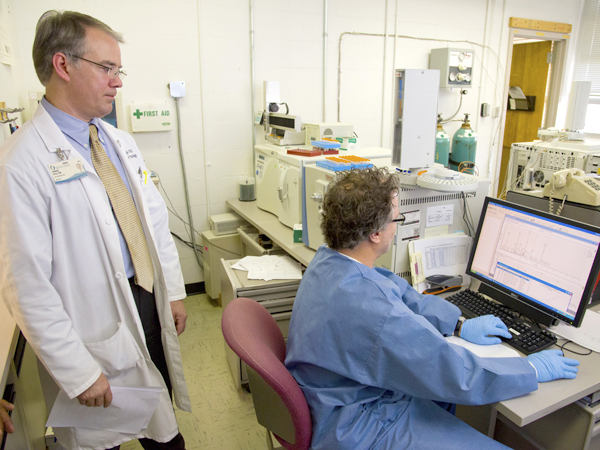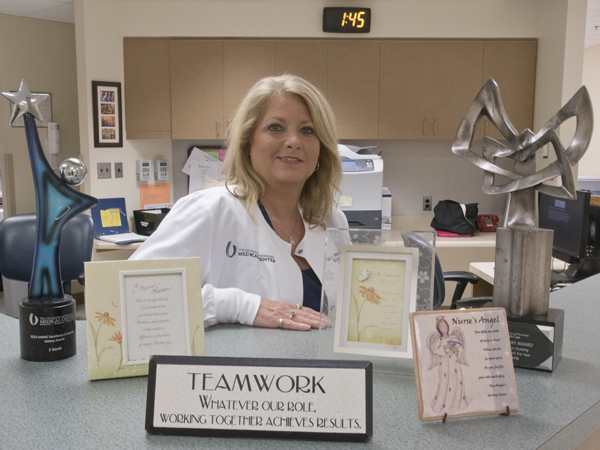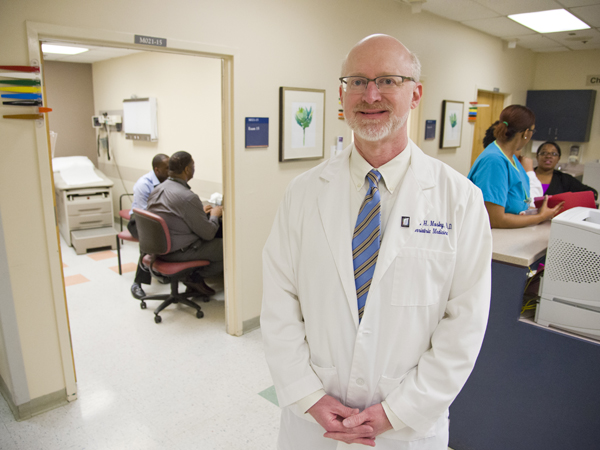|
An international team of researchers, including investigators from the University of Mississippi Medical Center (UMMC), has identified a gene that underlies healthy information processing — a first step on a complicated road to understand cognitive aging and age-related diseases, such as Alzheimer's disease. The study, published Tuesday (April 14, 2015) in the journal Molecular Psychiatry, is the largest genetics study to date to link a specific genetic mutation and information processing speed. "It is well known that genetic variation plays an important role in explaining individual differences in thinking skills such as memory and information processing speed," said Dr. Tom Mosley, director of the Memory Impairment Neurodegenerative Dementia (MIND) Center at UMMC and senior scientist on the study. "However, the genes that underlie thinking skills remain largely unknown. Our team has identified a genetic mutation that may help unravel this puzzle." The effort was conducted through the Cohorts for Heart and Aging Research in Genomic Epidemiology (CHARGE) consortium, in which researchers from around the world work together to search for genetic causes of disease in the general aging population. Previous studies in families and in twins have shown genetics play an important role in cognitive functioning, but finding the specific genes or genetic regions has proved difficult, requiring a combination of large sample sizes and detailed genetic measurements. But in this case, researchers analyzed data from more than 30,000 people who were 45 or older, bringing together genetic and cognitive functioning data from participants in several studies in 12 different countries. In addition, they examined genetic variations across 2.5 million sites along each individual's DNA, looking for associations between genetic variants and performance on several different tests of cognitive function. Of the different cognitive skills examined, the strongest genetic association was related to performance on a test of information processing speed. The most associated variants were located in the CADM2 gene, also known as Syncam2. "It seems like, through this genetic analysis, we have identified a genetic variant which partly explains the differences in information processing speed between people," said Dr. Carla Ibrahim-Verbaas, a resident in neurology at Erasmus University Medical Center in Rotterdam, The Netherlands, and lead author on the study. "It confirms the likely role of CADM2 in between-cell communication, and therefore cognitive performance. It is of interest that the gene has also been suggested in other studies to be involved in autism and personality traits." She cautions that the results remain to be replicated by additional studies. Researchers said a protein product from CADM2 is involved in the short-term and long-term chemically mediated communication between brain cells and is specifically abundant in the frontal and cingulate cortex, which are areas of the brain known to be involved in processing speed as well as in the developing brain. "We are finding that for complex traits, like cognitive function, not a single gene, but several genes or genetic regions come into play, with each making a relatively small contribution," Mosley said. "We now have the technology to measure across the entire genome in a much more fine-grained manner compared to a few years ago, in this case 2.5 million sites, and are able to combine that genetic mapping with large sample sizes. The collaboration of leading scientists from around the world, who have agreed to pool their data and analytic resources, is significantly enhancing our ability to identify genes related to complex brain functions and disease." The core CHARGE cohorts include five population-based studies, including the Atherosclerosis Risk in Communities study, AGES-Reykjavik Study, Framingham Heart Study, Cardiovascular Health Study, and the Rotterdam study. Funding for the cohorts was provided by the National Institutes of Health. Mosley said the study complements two other recent discoveries by the CHARGE team that identified genetic variants associated with both memory performance and general cognitive functioning in older adults.
|




























